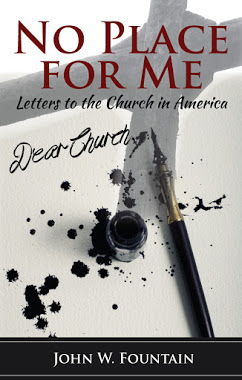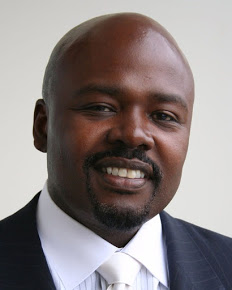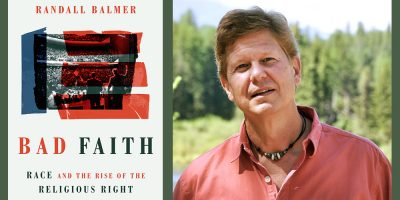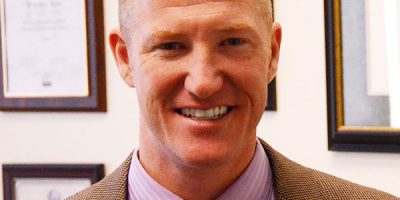New Book Excerpts
No Place for Me: Letters to the Church

New Book Excerpts from JohnWFountain.com
Why do so many men not go to church? Why does the church continue to erect multimillion-dollar edifices in the name of Christ, even in times of economic recession, often building them on the backs of the poor? What is one to do after having been wounded, church hurt or abused in the House of God? Has that Old Ship of Zion lost its way amid the downward spiral of materialism? Why have millions of Christians in recent years, according to researchers, abandoned that ship? And where do they go from here when their love for God remains hot, and yet, their love for the institution called church has grown cold?
What would drive a Pentecostal son, grandson of a pastor, who grew up in the church, away from the very church he so deeply loves?
All are questions explored here by John W. Fountain in No Place for Me: Letters to the Church. This book was born out of an essay by Fountain that ran in the Washington Post and subsequently in newspapers across the country, drawing thousands of letters from a wide swath of readers, nationally and abroad.

An award-winning columnist for the Chicago Sun-Times and formerly national correspondent for the New York Times and reporter for the Washington Post, Fountain is a professor at Roosevelt University in Chicago. In this book, he raises critical questions about the institution called “the church” and also about how faith is lived in America. And yet, throughout it, he so clearly expresses his love for God and for the church he once knew—a church that years ago, he says, more closely resembled that ideal “church” established by Jesus Christ, purchased by His blood on Calvary.
A true-life narrative sprinkled with letters from Fountain’s readers over the last eight years and his responses, No Place for Me also allows readers to eavesdrop on his conversations with those who have reached out to him—many of them discouraged and deeply wounded by the church and searching for an answer to one agonizing question: Where do we go from here?
Among them are men and women, ministers and deacons, disenchanted theology students, gays who have been disillusioned and disheartened by over-the-pulpit bashing, and countless others who have been broken, belittled, battered or bewildered by the church experience. It includes the voices of people of all races, men and women, the young and the old, and even pastors—some also disillusioned, some supportive of Fountain’s assertions and others angered by them. In the end, Fountain finds along his reflective journey as a writer a place for him after all—a place perhaps for others too who also find themselves wandering in the wilderness of church hurt and deep disappointment.
No Place for Me is more than a window into the impassioned conversation of one writer with his readers. It is a spiritual memoir. This book is honest. It is stirring. And it calls upon us all to challenge, wrestle with and find the true meaning of “church,” to reflect upon and also to renew our faith. It is a moving collection of contemporary “Letters to the Church.” A must read. A word for these times.
______________________
______________________
From the Prologue:
I am a sinner. I stand with one foot in each world, one called sin, the other called grace. I stand in the midst of sins I have committed today and yesterday and those I will inevitably commit on tomorrow. And whatever my sins—and they are many—none of them are greater than His grace that by the blood of His Son makes me—us—in the words of a Gospel hymn, “whiter than snow.” I stand because of our Lord and Savior Jesus Christ—He who remembers when others forget but also He who forgets when others remember. I stand. And yet, without Him, I can do nothing.
I stand here, somewhere on the timeline of Christianity—more than 2,000 years after the Day of Pentecost, 18 centuries after Roman Emperor Constantine the Great placed his thumbprint on Christianity, and many years after the Great Awakenings. I stand. Somewhere in the afterglow of the Azusa Street Revival in Los Angeles, California, which gave birth to modern Pentecostalism in America, I stand. Between the cries of ancestral slaves in the cotton fields of southern plantations, between my great-great grandfather’s pastoral prayers in Pulaski, Illinois, where he—Burton Roy—migrated from Atlanta, Georgia, after the Civil War and the Emancipation Proclamation set him free from the bonds of slavery he inherited from birth. I stand. I stand on the prayers of my grandmother and grandfather, Florence Geneva and George Albert Hagler, who, in 1943 made their way, like millions of southern blacks during the Great Migration to Freedom Land up north—in their case Chicago. I stand as testament to the prayers and faith of the “prayer warriors,” those gray-haired church mothers with whom on Tuesday and Friday mornings at one storefront church or another we petitioned God for my soul, health and future. I stand as proof that God hears even the cries of a ghetto boy.
Shaped in iniquity, even in my mother’s womb, I am the son of an alcoholic father, predestined, at least having a predisposition to dysfunction, death and damnation. And I am certain that it is the grace of God that I have not been consumed and have found instead of my father’s tragic fate a life filled with more blessings than the curse, pain and sufferings of sin. I am as certain that the church, the institution, the building, the place where I have gathered more times than I can count since I was a child had a critical hand in the faith that pulled me through poverty, hardship, and away from the very gates of hell, toward life.
And if I close my eyes, I can tunnel through time, through the years of Sunday worship service and Sunday School, of singing in the choir at one storefront church or another, or my roles in countless Easter and Christmas plays since I was knee-high. If I close my eyes, I see me standing in the front of the sanctuary as a teenage junior deacon, or plucking my lead guitar during worship service. Or I see me as a young adult, standing in my one and only suit—dark blue and shiny from wear and tear—near the offering collection plate at the wooden table in front of the church as a full-fledged deacon. Or I stand preaching from the pulpit as a minister of the Gospel, Grandmother shouting, Amens and the saints egging me on to preach the Word. I see me, walking with my bible outside on weekdays, up and down the 1600 block of South Komensky Avenue, where I grew up and later lived as a young man with my wife and three children on the West Side of Chicago. It was the same block where my grandfather owned two apartment buildings where nearly all of our family lived at one time or another. Toting my bible, I would knock on my neighbors’ doors, telling them about Jesus, asking parents if they would allow their children to attend Sunday School at my church. “The church van will swing down the block about 9:15 or so on Sunday morning,” I would say, adding that the kids would be in for treats and games. On to the next door.
If I close my eyes, I see a different man than I am today: Younger, fervent, more idealistic.
I see me, standing to testify of the goodness of God and of my steadfast faith in Him, despite not having money to pay my electric or gas bill and having them subsequently disconnected. Despite my inability to find a job after months and months of unemployment. I see me as a young man, walking to church with my young family on Sunday evenings, up Pulaski Road to Roosevelt Road, then east to True Vine Church of God In Christ, my grandfather’s storefront church at 3915 W. Roosevelt. I can still see True Vine’s neon-lit marquee with the red letters “Jesus Saves” in a white globe, lighting the way. And inside those doors, if I close my eyes, I can hear the organ revving, cries of “Yes Lord,” the exaltations of the saints: Amen’s and Hallelujahs. And I can feel the Spirit. It rises from my belly, seems to spread like electricity across the congregation that rises to its feet, praising and worshipping on one accord. I see Grandmother, standing across from the church mothers, dressed in all white, her face aglow with a light not of this world and Grandpa sitting in his suit and clergy collar at attention in the pulpit, between the other ministers as it appears that the worship service has now come under God’s divine control. And I stand in the midst—inept, incomplete and insignificant in my own strength, ability and status in life—but completely oblivious to my failings, shortcomings and insufficiencies in the glory of this moment in which God has become the focal point of our hearts, soul, mind and strength. And in the awesomeness of His power, we, the church—a body of believers—exists as one, with one purpose, one Lord, one faith, one hope. One.
And yet, when I open my eyes now, I stand mostly alone these days—at least apart from the church I once knew. I arrived at this state unintentionally, though it has since become clear to me that it was far from happenstance and that my collective experiences in the church—my tears and my joys, my hurts and my triumphs, my acceptance and rejection and far too many disappointments in the church—have their part in my bittersweet exodus. It wasn’t something I planned necessarily, nothing I had ever quite imagined would ever happen to me, especially after years of going to church, having been raised a PGK—a pastor’s grandkid—and with Pentecostal pedigree running through my veins like blood. But I was church hurt. Church angry. Church wounded. By pastors, by so-called brothers and also sisters. By a lifetime of backbiting, browbeating, by slights, over-the-pulpit berating and pastoral oppression. By that deep hurt that I have seen sting so many within the House of God at the hands of “the brethren” or the “sisters,” and which seems among the deepest of all hurts and betrayals.
Slowly, I began slipping away—first, a Sunday here and there. I stopped attending bible study. Sunday School. Eventually, Sundays became days to sleep in or mornings to sit and sip a cup of coffee at a local café. It was preferable to the weekly hemorrhaging in the pew that Sunday’s at church had become, listening to Buffalo fish-sermons, prosperity preaching, political spiels from visiting election candidates, or hype-‘em-up hooping and hollering, half-sung homilies that had about the same effect as a sugar sandwich on white bread. I say “Buffalo fish-sermons” because the tasty, flaky white fish is filled with so many bones that the sifting through the bones that can kill you make it for me not even worth the while, and, in fact, safer to avoid altogether. I had also come by then to believe that the church prefers the majority of men to be spineless, speechless and sack-less—at least with regard to criticizing the pastor or the church or the status quo within it. I had come to believe that for some, attending church has become the Sunday ritual for proving how much better or holier “they” are than “us.” But I digress.
By the time I stopped attending church on a regular basis in 2005—aside from the visit to one church or another on some Sunday when mostly a feeling of guilt mixed with a longing for the cultural ritual of worship I had known since a child—I was sick of church, literally…
John Ross on Saturday, April 23, 2016 launched XPian News, a part of Daybreak Communications, Inc. Ross is the facilitator of Aurora Christian Ministry Network (ACMN) and a member of the Fox Valley Christian Ministerial Alliance (FVCMA). He serves on the boards of Wayside Cross Ministries and the Kiwanis Club of Aurora. As a follower of Jesus, he has been for some 40 years a member of First Presbyterian Church - Aurora. He has an M.A. - Christian Leadership from Wheaton College Graduate School and undergraduate at Trinity International University. editor@xpian.news





Comments are Closed